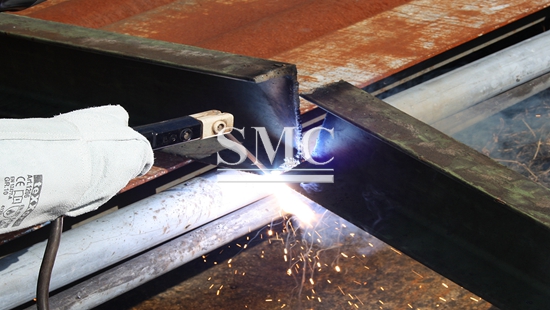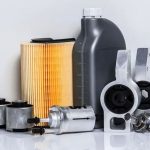Steel has endless uses and can be found in our everyday appliances. It is considered to be one of the most versatile and important metals in the industry. It has physical properties that make it applicable in multiple situations, and we probably would not be able to continue on without it. Recently, Chinese scientists have discovered a new recycling method for rusty steel. They have managed to develop a way to convert rusty stainless steel directly into battery electrodes.
They have used rejected stainless steel meshes that have experienced some corrosion. They have discovered that this product was the best solution to produce the best outcome. The process starts out with the rust being converted directly into a compact layer composed of a gridded structure that has the ability to store potassium ions. There is a coating of reduced graphite oxide that increases the conductivity and stability during charge/discharge cycles. The increase of renewable energy use requires effective energy storage within the grid. “Conversion into electrodes could develop into a more ecologically and economically sensible more of recycling,” Zhnag Xin-Bo explained.

The corroded material is dipped into a potassium solution containing ferrocyanide which helps dissolve and extract the iron, chromium, and nickel ions out of the rusty layer. Then, the components are combined with the ferricyanide ions into a complex salt (Prussian blue) which id then deposited onto the surface of the mesh as scaffold-like nanocubes. The potassium ions are able to be easily stored and released. After, a dip-coating process to place a layer of oxidized graphite is used. The layer clings on tightly to the nanocubes. Subsequent reduction then converts the oxidize graphite to reduced grapheme oxide (RGO), which also consists of layers of graphite with isolated oxygen atoms. The RGO coating consists of cluster and separation of the material. It also simultaneously increases the conductivity and allows extremely fast electron transportation pathways. As a whole, this process will require a lot of time, money and energy.
Although expensive and limited, lithium ion batteries are promising candidates. While they are charging, the ions shift towards the graphite electrodes and are stored between the layers of carbon. Another potential alternative can be sodium ion batteries. Potassium ions are more superior within the electric aspect and just as inexpensive and available as sodium ions, but their larger radius has imposed some difficulties. Repeated storage and release of the ions destabilize the materials that are used in electrodes.
Shanghai Metal Corporation is a trusted aluminum alloy, aluminum foil price, stainless steel price and stainless steel manufacturer, kinds of stainless steel in china.
Guest contributors are welcome at the Alloy Wiki.It is a weekly wiki and guide on alloy information and processing technology, while also about the vast array of opportunities that are present in manufacturing. Our team of writers consists of a Machining Material Supplier / Machinist / Tool and Die Maker, a Biomedical Engineer / Product Development Engineer, a Job Development Coordinator / Adjunct Professor, and a President and CEO of a manufacturing facility.
Link to this article:Steel the New Electrodes
Reprint Statement: If there are no special instructions, all articles on this site are original. Please indicate the source for reprinting:Alloy Wiki,thanks!^^


